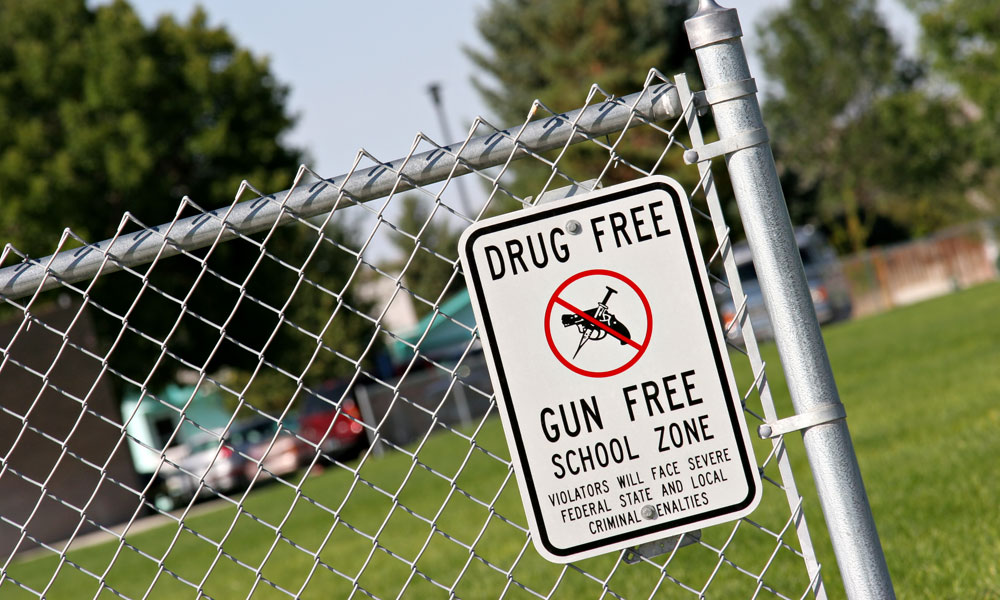
Guns in Schools: Districts Consider Arming Staff, but Insurers Have Cold Feet
Some school districts are trying to allow educators and other employees to carry guns on campus, and many insurance carriers have threatened to raise premiums or cancel coverage entirely. Education associations find themselves stuck in the middle.
It’s a controversial issue for sure, and school districts that are interested in allowing educators to carry guns on campus are finding it a challenge.
If there’s no insurance available, it’s difficult to do anything.
Why? Because insurance companies, which often work with the districts through state associations, are threatening to increase premiums or revoke coverage entirely for districts that make such a move. More details on the issue:
The problem: In the wake of the school shooting in Newtown, Connecticut, late last year, a number of districts in such states as Kansas, Oregon, and South Dakota have considered giving educators the choice to carry weapons on campus. (State legislatures are also taking up the issue, with 30 such bills being considered so far this year, according to the National Conference of State Legislatures.) However, insurers have proved to be a big obstacle: Some carriers have discouraged districts with talk of hiking premiums or threats to revoke coverage. EMC Insurance Cos., a provider that has drawn a line in the sand on the issue, would prefer police officers in armed roles.
The insurance hurdle: Many schools join insurance programs through state school board associations, and in some cases, the providers impose limitations on the group plans. The Oregon School Board Association’s insurance program, for example, allows districts to let staff members carry weapons on the job under its new pricing structure—but only after they pay a $2,500 annual premium for each one who does, a fee that could prove cost-prohibitive. The Kansas Association of School Boards, meanwhile, tells The New York Times that once its insurance provider, EMC, clarified its policy of declining coverage to those who took advantage of the state’s law allowing school staff to carry weapons, school boards stopped asking about it. “If there’s no insurance available, it’s difficult to do anything,” the association’s David Shriver says.
Not every state faces this issue: In Texas, strong state law protections from tort lawsuits have allowed the Texas Association of School Boards to offer such programs through a cooperative—without extra charges. The association also offers members a fact sheet regarding guns and school safety.
(iStockphoto/Thinkstock)






Comments